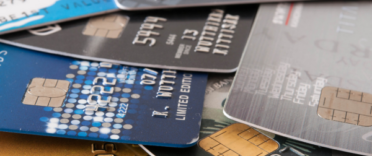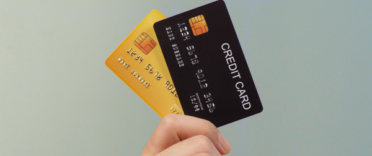 With a huge variety of different credit cards available, it can be difficult to work out which credit card is best suited to your needs. In this article we look at four common scenarios where people stand to benefit from choosing a particular type of card, allowing them to better manage their debts and potentially save money. These fall into the following categories:
With a huge variety of different credit cards available, it can be difficult to work out which credit card is best suited to your needs. In this article we look at four common scenarios where people stand to benefit from choosing a particular type of card, allowing them to better manage their debts and potentially save money. These fall into the following categories:
"I have credit card debt and I'm struggling to keep up with the repayments"
It's really easy to find yourself in the situation where you have credit card debt that is beginning to feel overwhelming. It may be that you've taken out a card because of the introductory offer and, now that offer period is over, the interest payments are too high to keep up with. Or you may only have been paying the minimum monthly repayments. If it is causing you a lot of anxiety, the first thing to do is seek some impartial free debt advice.
If you want to escape from high interest payments and get some breathing space to pay off your debts, one option is to take out a balance transfer credit card. These cards provide you with an interest-free introductory period on existing debt that you transfer from other credit cards and store cards. The best deals give you well over a year, although these cards usually require you to pay an up-front transfer fee of up to around 3-4% to move the debt on to the card. There are other cards that are fee-free, but the interest-free periods are shorter.
Top balance transfer credit card tips
- Think about your credit rating - The deals with the longest interest-free periods typically require a very good credit score, which could exclude you from some of the prime options. You can check your credit score for free and if it is lower than you had hoped, you can take steps to improve it.
- Do the transfer fee maths - If you have a sizeable amount to move over, the balance transfer fee is going to be a key consideration when choosing the right deal for you. However, it may be worth shouldering the fee – £80 on a £2000 transfer if the rate is 4%, for example – if it will enable you to access one of the really long interest-free deals.
- Research your providers - As different providers are often part of the same banking group, they may not accept transfers of debts from their sister-companies. This will be clearly stated in the terms and conditions, so it is worth checking if there are any restrictions before starting the application process.
- Look up the rate after the interest-free period - It's important to note that most balance transfer cards require you to transfer the debt within a certain period after you have taken out the card – typically within 30, 60 or 90 days – which means interest is payable on any further spending on the card. You will also be liable to pay interest on the remaining balance once the introductory period has come to an end. While you could simply transfer to another zero-rate deal when you get to that point, it is good practice to try to tackle the debt head-on rather than moving it between credit-card providers.
For the current best deals on balance-transfer cards, check out our article 'Best 0% balance transfer credit card deals'.
"I need to make a big purchase, but I already have credit card debt"
In an ideal world, if you had existing debt to pay off you would do that first before undertaking any further spending. Read our article '4 easy ways to clear your credit card debt' for some helpful tips.
Unfortunately, it can be the case that there are other essential, bigger-ticket items you need to buy before you can commit to paying down your other borrowing. In these circumstances there are some good all-round credit cards, which offer interest-free periods on not only balance transfers but also on purchases. When used sensibly, they provide a useful tool to help you manage your repayments and spread the cost of more expensive items.
The best deals offer around two years on both balance transfers and purchases. Again, it is important to factor in whether there is a balance transfer fee payable and to consider what the interest rate is going to be once the introductory offer comes to an end.
Top all-rounder credit card tips
- Be disciplined with your spending - It can be really tempting during the interest-free period on purchases to start splashing out on non-essentials, particularly when you may have many months - and even years - to pay it off. However, it is not free money and you still need to be able to service the debt and, ultimately, pay it off.
- Think about other ways to fund your purchases - Depending on the length of interest-free period and how much you need to spend, it can work out better to take out a personal loan to consolidate your existing debts and make the purchases with. This is particularly the case if it is unlikely you will be able to pay it all off in full over the interest-free period. Shop around for competitive loan rates and compare them with the corresponding credit card deals.
Find out which credit card is best for you
Money to the Masses uses Creditec*, an online comparison service that enables you to find credit card deals tailored to you without affecting your credit score. You will want to compare as many different options as possible before you get a new credit card, so it is a good idea to do a fast online comparison. With only a few basic details, the Creditec tool will build a personalised list of credit cards suited to your needs to help you navigate the huge number of options out there. You can then pick the result that suits you best. None of this will affect your credit score as the eligibility process uses a soft credit check. Click here to start your comparison*.
"I need to buy furniture for my new house, but the rate on my credit card is high"
If you have a big-ticket purchase to make, it is a good idea to use a credit card as it offers you protection under Section 75 of the Consumer Credit Act (read more about it in 'Section 75 of the Consumer Credit Act explained - your rights and how to claim'). Moreover, it can be a useful way of spreading the cost and making it more affordable than if you had to pay the total amount upfront. It is, however, worth looking for a credit card that has a 0% deal on purchases so you don't end up paying over-the-odds on interest on the debt.
Top 0% purchase credit cards tips
- Think about any existing credit card debt - If you have existing credit card or store card debt, an all-round credit card with a 0% deal on both balance transfer and purchases may better suit your needs.
- Work out what credit limit you need - In some instances the card provider may not offer you the advertised credit limit, as what you get is based on your individual circumstances. This could mean the amount you are offered doesn't cover the cost of the purchases you need to make and a personal loan may be a better option.
"I want to make my money go further and benefit from the regular shopping I do"
Finding a good cashback or rewards credit card is an easy way to make your money work harder. If you can find an option that matches your typical spending habits, you can quickly start earning cash paid straight into your account or, alternatively, rewards in the form of vouchers or discounts.
Some of the cards with the best offers also incur an annual fee, so it is important to work out whether you are likely to recoup this cost in the rewards you earn. Others may have components that you may be unlikely to partake in, for example exclusive access to tickets to events or travel insurance, which you may not need or have no interest in.
Top cashback and rewards credit card tips
- Do your grocery shopping with the same brand - If you are a loyal shopper you can earn extra points on your normal grocery shop if you use the respective branded credit cards. With Sainsbury's you can earn extra Nectar points, with Waitrose you can earn vouchers and with Tesco you can earn additional Clubcard points. In most cases there are also 0% balance transfer or purchase introductory periods.
- Ensure you make the most of your travels - Some of the most valuable rewards cards in terms of monetary value are those that allow you to earn free flights and hotel stays. Most of these require a relatively high annual spend to qualify, with some of the premium cards also attracting fairly sizeable annual fees. If, however, you are a frequent flyer or tend to spend quite a lot on your credit card from month to month, it is worth enjoying the perks on offer.
- Organise your credit card spending - Juggling different credit cards to make the most of cashback and rewards and introductory offers does require some planning. With these type of cards, they are only really worthwhile if you are able to pay off the balance in full each month to ensure you don't end up paying interest on the debt.
The best cards are covered in our articles 'Compare the best cashback and rewards credit cards' and 'Which is the best American Express credit card'.
If a link has an * beside it this means that it is an affiliated link. If you go via the link Money to the Masses may receive a small fee which helps keep Money to the Masses free to use. But as you can clearly see this has in no way influenced this independent and balanced review of the product.






